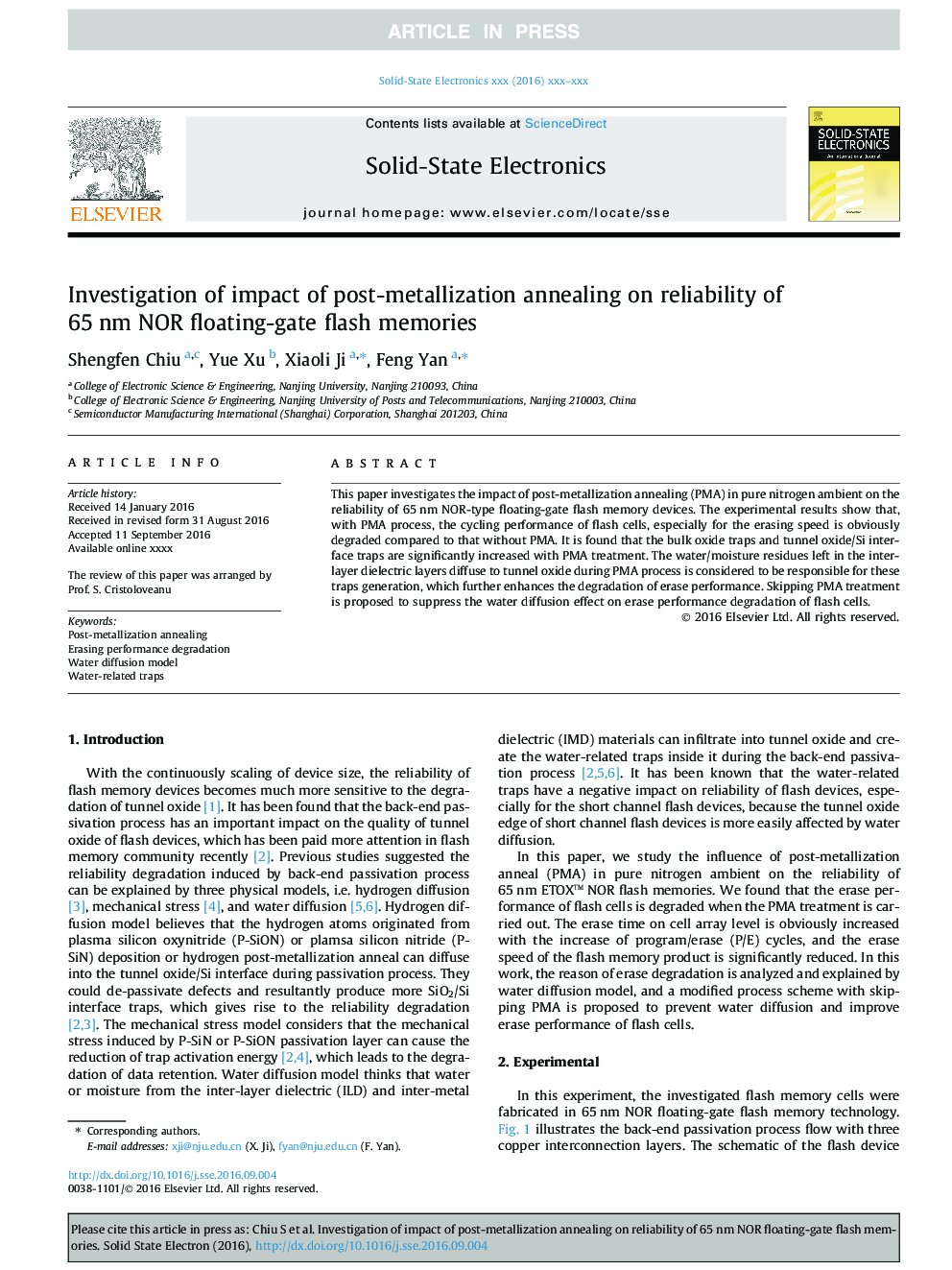| Article ID | Journal | Published Year | Pages | File Type |
|---|---|---|---|---|
| 5010420 | Solid-State Electronics | 2016 | 5 Pages |
Abstract
This paper investigates the impact of post-metallization annealing (PMA) in pure nitrogen ambient on the reliability of 65Â nm NOR-type floating-gate flash memory devices. The experimental results show that, with PMA process, the cycling performance of flash cells, especially for the erasing speed is obviously degraded compared to that without PMA. It is found that the bulk oxide traps and tunnel oxide/Si interface traps are significantly increased with PMA treatment. The water/moisture residues left in the interlayer dielectric layers diffuse to tunnel oxide during PMA process is considered to be responsible for these traps generation, which further enhances the degradation of erase performance. Skipping PMA treatment is proposed to suppress the water diffusion effect on erase performance degradation of flash cells.
Keywords
Related Topics
Physical Sciences and Engineering
Engineering
Electrical and Electronic Engineering
Authors
Shengfen Chiu, Yue Xu, Xiaoli Ji, Feng Yan,
